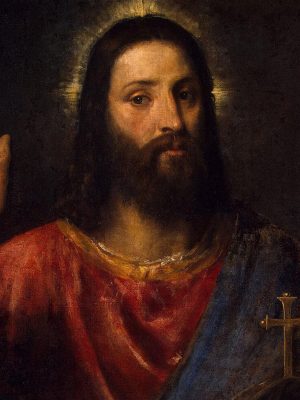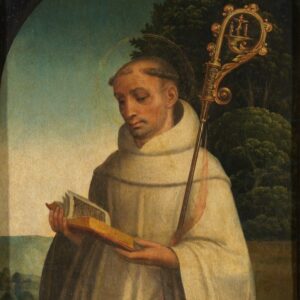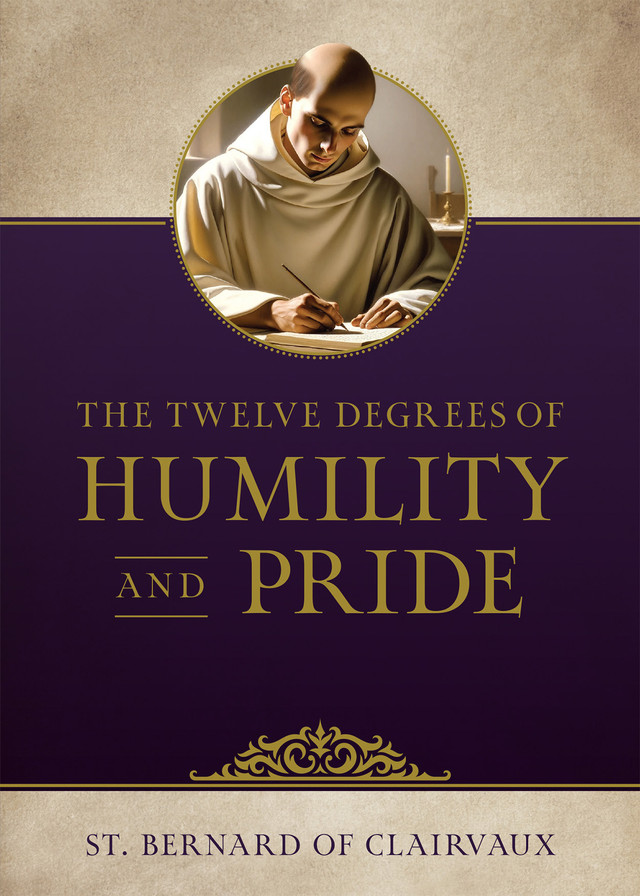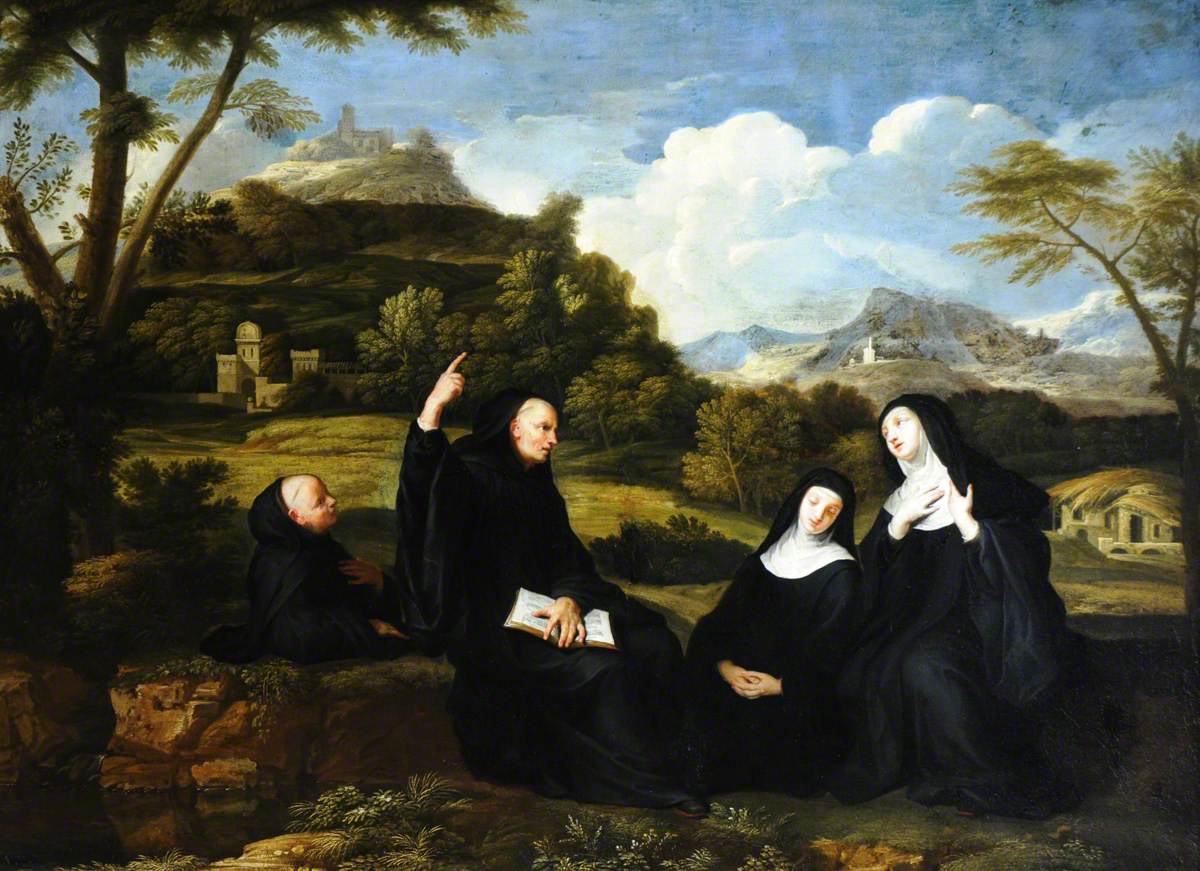In his masterful work, The Twelve Degrees of Humility and Pride, St. Bernard of Clairvaux eloquently crafts a soul’s guide to spiritual ascent. Read on to begin your ascent toward humility.
I am, saith He, The Way and the Truth and the Life. (John 14:6).
He calls humility “the way” because it leads to the truth. In the former lies the labour, in the latter is the reward.
But, you may ask, how am I to know that He was here speaking of humility, since He says without further explanation, I am the Way?
Listen to His more explicit statement, Learn of me because I am meek and humble of heart. (Matt. 11:29). In this He exhibits Himself as a type of humility, a model of meekness. If you imitate Him, you are not walking in darkness, but you will have the light of life. What is the light of life, unless it be the truth, which lightens every man that comes into the world, and shows us wherein true life consists? For this reason, to those words of His I am the Way and the Truth, He added and the Life, as though He meant to say, I am the way because I lead to the truth, I am the truth because I promise life, I am myself the life which I give.
For this, saith He, is life eternal, that they may know thee the true God, and Jesus Christ whom thou hast sent. (John 17:3). But admitting this, you may still say, I recognize humility as the way; I long for truth as the reward; but what if the toil of the journey be so great that I am unable to reach the desired goal?
To this He replies, I am the life, that is the provision for the journey by which you will be supported on the way. So He exclaims to the wanderers and to those who do not know the road, I am the way, to the doubters and disbelievers, I am the truth, to those who have begun the ascent and are getting tired, I am the life.
I think that it has been made sufficiently clear by the passage quoted from the Gospel that the reward of humility is the apprehension of the truth. And take another passage, I praise thee, Father of heaven and earth, because thou hast hidden these things (that undoubtedly means “secret truths”) from the wise and prudent (that is from the proud) and hast revealed them unto babes (that is to the humble). (Matt. 11:25).
This affords further evidence that the truth which is withheld from the proud, is disclosed to the humble. And the following may be taken as the definition of humility. It is the virtue which enables a man to see himself in his true colours and thereby to discover his worthlessness. And this is the characteristic virtue of those who are disposed in their hearts to ascend by steps from virtue to virtue, until they reach the summit of humility; where, standing on Sion as on a watch-tower, they may survey the truth. For, saith the Psalmist, the law-giver shall give a blessing. He then who gave the law will also provide the blessing—that is to say, he who has prescribed humility will conduct us to the truth.
And who is this lawgiver but the kind and righteous Lord who has given a law to those who fail in the way? And surely those who have forsaken the truth have failed on the way. But are they on that account forsaken by the kind Lord? Nay, but it is for these very persons that the kind and righteous Lord prescribes the path of humility, by their return to which they may discover the truth. He allows them an opportunity of regaining salvation because He is kind, yet not without the discipline of law because He is righteous. In His kindness He will not permit their ruin, in His righteousness He cannot omit their punishment.
ooo
This article is taken from a chapter in Twelve Degrees of Humility and Pride by St. Bernard of Clairvaux which is available from TAN Books.









